In the News | Older
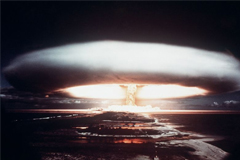 |
In the NewsJanuary 31, 2014Russian weapons removal & the cold war backpack bombThomas Neff and Adam RawnsleyWNYCWhen the Cold War ended, Russia was unsure what it should do with its thousands of weapons, from missiles to bombers. MIT Physicist, Dr. Thomas Neff, suggested that Moscow be allowed to sell the uranium from its retired weapons and dilute it into fuel for electric utilities in the United States, giving Russians desperately needed cash and Americans a cheap source of power. The program converted more than 20,000 Russian warheads into fodder for nuclear power plants that have since turned on one in 10 American light bulbs over the course of the past 20 years. And now, more than two decades later, the last uranium shipment arrived in the United States last month. Dr. Neff explains how he initially conceived of this program. |
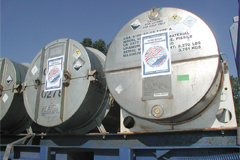 |
In the NewsJanuary 27, 2014From warheads to cheap energyWilliam J. BroadThe New York TimesAs the Cold War ended in the late 1980s and early ’90s, a new fear arose amid the rejoicing and relief: that atomic security might fail in the disintegrating Soviet Union, allowing its huge stockpile of nuclear warheads to fall into unfriendly hands. Many officials and scientists worried. Few knew what to do. That is when MIT physicist, Thomas L. Neff, hit on his improbable idea: turning Russian warheads Into American electricity. |
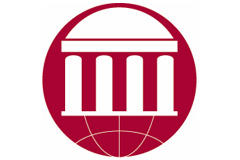 |
In the NewsDecember 13, 2013How should we use our intelligence?Peter DizikesMIT NewsMIT event exposes fault lines among high-ranking former government officials on NSA’s data-gathering programs. |
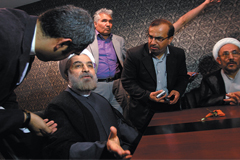 |
In the NewsAugust 15, 2013For a new approach to IranWilliam Luers, Thomas R. Pickering, and Jim WalshThe New York Review of BooksCould this be the year for an engagement with Iran that “is honest and grounded in mutual respect,” as President Obama proposed over four years ago? That goal seems unlikely without a shift in Iranian thinking and without a change in American diplomatic and political strategy. But two developments, one in Iran and one in the region, provide reason to think that diplomatic progress might be possible. |
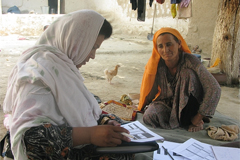 |
In the NewsAugust 2, 2013Empowering women in AfghanistanPeter DizikesMIT NewsBy placing some women in local leadership positions, an innovative development aid program integrates women into civic life, and may have economic benefits. |
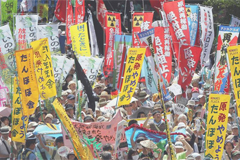 |
In the NewsJuly 6, 2013Letting opportunity slip awayJeff KingstonThe Japan TimesSo why hasn’t March 11, 2011, been the game-changer that many anticipated? Richard Samuels’ masterful account of Japan’s policy responses to its greatest crisis since World War II explains why continuity has trumped change. But maybe, just maybe, it hasn’t, as he also reminds us that the consequences are still unfolding. |
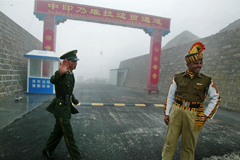 |
In the NewsMay 3, 2013Why China and India probably won't clash over border disputeMax FisherWashington PostBoth China and India have claimed the Maryland-sized territory of Aksai Chin near India's northeast border for decades, and even fought a brief war over it in 1962. But the issue was mostly calm until about three weeks ago. |
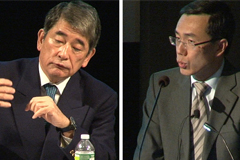 |
In the NewsApril 17, 2013China and Japan in the East China SeaPeter DizikesMIT NewsAt MIT event, diplomats and scholars reinforce high stakes, lack of progress on Asian territorial dispute. |
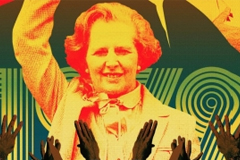 |
In the NewsApril 13, 2013When the world changedThe EconomistLater this month Christian Caryl, a veteran foreign correspondent now based in Washington, will publish a timely new book, “Strange Rebels: 1979 and the Birth of the 21st Century”. In it he argues that 1979 belongs to the select club of real turning-points: years in which one era ended and another was born. |
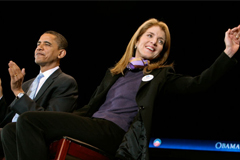 |
In the NewsApril 2, 2013Amateur hourStephen M. WaltForeign PolicyUnited States has lofty global ambitions, and its leaders still like to describe the country as the "leader of the free world," the "indispensable nation," and various other self-congratulatory labels. Yet it doesn’t always marry these ambitions to a set of policies and practices that would help it achieve them. Case in point: the well-sourced rumor that the Obama administration is about to appoint Caroline Kennedy to serve as our next ambassador to Japan. The obvious question: Is this an appointment that demonstrates a serious engagement with the complex problems the United States is now facing in Asia? |
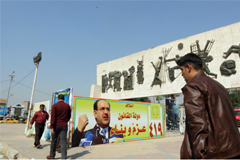 |
In the NewsMarch 6, 2013The democracy boondoggle in IraqChristian CarylForeign PolicyThe U.S. spent billions promoting democracy in Iraq. Now the official verdict is in: It was all for nothing. |
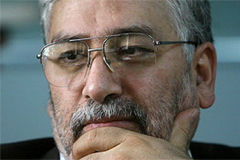 |
In the NewsFebruary 7, 2013Lifting of sanctions will take a few yearsAbbas MalekiPanorama.amAn interview of Irdiplomacy.ir with Dr. Abbas Maleki, a former Iranian deputy foreign minister. |
 |
In the NewsNovember 2, 2012How civil wars evolveFotini ChristiaMIT NewsMIT political scientist’s book shows how even the bloodiest conflicts feature pragmatic alliances — not just ancient sectarian divisions. |
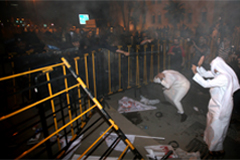 |
In the NewsOctober 17, 2012Where the Arab spring has not yet sprungChristian CarylForeign PolicyThe spirit of rebellion continues to simmer in the Middle East and North Africa. But you won’t see much about it in the headlines. |
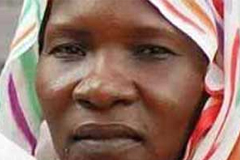 |
In the NewsOctober 3, 2012An idealist on death rowChristian CarylForeign PolicyWhy the desperate fate of a little-known Sudanese human rights activists poses some fundamental questions about what it means to be human. |
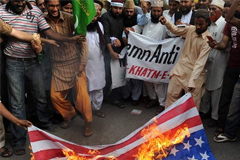 |
In the NewsSeptember 14, 2012Violence and protests in the Muslim worldFotini ChristiaMIT NewsThe world has been roiled by violence in North Africa and the Middle East in recent days. The U.S. ambassador to Libya, J. Christopher Stevens, was killed in an attack this week, while violent protests were launched in many countries following the release of a video insulting the Prophet Muhammad on the Internet. MIT political scientist Fotini Christia, who studies multiethnic conflict in rebuilding nations, talked to MIT News about this complex and fluid situation. |
 |
In the NewsSeptember 12, 2012The Salafi momentChristian CarylForeign PolicyAs the death of a U.S. ambassador in Libya demonstrates, the ultraconservative Salafi movement is pushing to the forefront in the politics of the Middle East. The West should be careful how it reacts. |
 |
In the NewsJune 5, 2012GOP whining on military spending cutsBenjamin FriedmanCato InstituteCato daily podcast featuring Benjamin Friedman. |
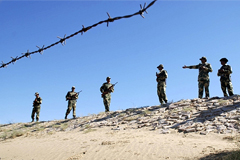 |
In the NewsMay 1, 2012What might an India-Pakistan war look like?By Christopher ClaryToward the end of his presidency, Bill Clinton argued that Kashmir, the territory disputed by India and Pakistan, was 'the most dangerous place in the world.'1 Clinton's second term saw India and Pakistan undergo reciprocal tests of nuclear weapons in 1998, followed in 1999 by the Kargil war, the first conflict between nuclear weapons states since the Ussuri River clashes between the Soviet Union and China in 1969. |
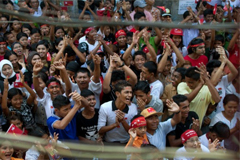 |
In the NewsMarch 30, 2012The lady's leap of faithChristian CarylForeign PolicyWhy Aung San Suu Kyi's decision to participate in a flawed election could be the biggest gamble of her career. |


